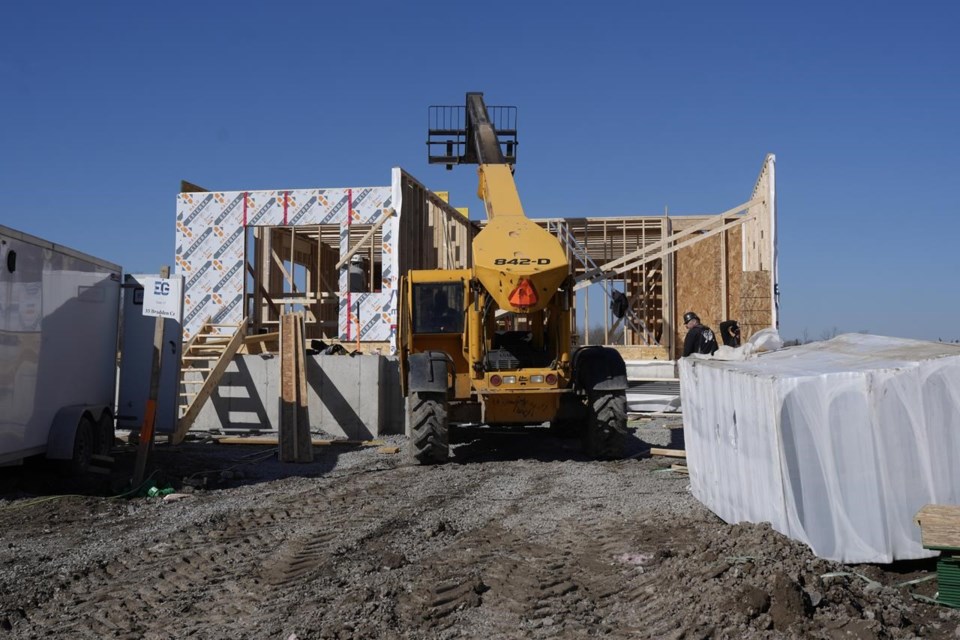OTTAWA — Canada Mortgage and Housing Corp. says the annual pace of housing starts in March declined seven per cent compared with February.
The national housing agency says the seasonally adjusted annual rate of housing starts amounted to 242,195 units in March compared with 260,047 in February.
When looking at year-over-year figures, actual housing starts in large urban centres were up 16 per cent to 17,052 units last month compared with 14,756 units in March 2023. The year-over-year increase was driven by higher multi-unit starts, up 19 per cent, and higher single-detached starts, up two per cent.
Actual housing starts were 10 per cent higher in Toronto and 15 per cent higher in Vancouver year-over-year because of an increase in multi-unit starts. Montreal's actual starts dipped one per cent, dragged down by lower multi-unit starts.
The annual rate of rural starts was estimated at 21,452 units.
TD economist Rishi Sondhi said housing starts continue to trend "at a solid pace," even with the month-over-month decline in March, supported by elevated prices and firm pre-construction sales in the past.
But he cautioned that further decreases to the number of starts are likely in the months to come.
"While governments are actively looking for ways to enhance supply, we think that housing starts are likely to decline further this year, on the back of more recent weakness in pre-sales activity," he said in a note.
"What's more, industry analysis suggests that financing for purpose-built rental units currently under construction was obtained when borrowing conditions were more favourable. As they've turned tougher, this segment of the market could be impacted."
Month-to-month starts can fluctuate significantly since the launch of larger multi-unit developments can skew numbers. Adjusted starts in March were up 27 per cent in Vancouver, driven by an increase in multi-unit starts, while Toronto and Montreal declined 26 per cent and five per cent, respectively, due to decreases in multi-unit starts.
To smooth out those swings and give a clearer picture of the upcoming housing supply trend, CMHC also reports a six-month moving average of the adjusted rate.
In March, the indicator showed starts at 243,957, down 1.6 per cent from 247,971 in February.
"The slight decline in multi-unit housing starts in March likely just reflects the volatile nature from one month to the next of these large projects," Desjardins economist Kari Norman said in a note.
"Looking forward, the gradual unwinding of interest rate hikes expected to begin this June will bring cautious optimism to housing starts. However, this optimism is tempered by challenges such as construction labour shortages, inflation in building materials costs and weaker homebuilder sentiment."
She said those factors could potentially slow the momentum seen in early 2024, despite a favourable shift in monetary policy.
This report by The Canadian Press was first published April 16, 2024.
The Canadian Press

